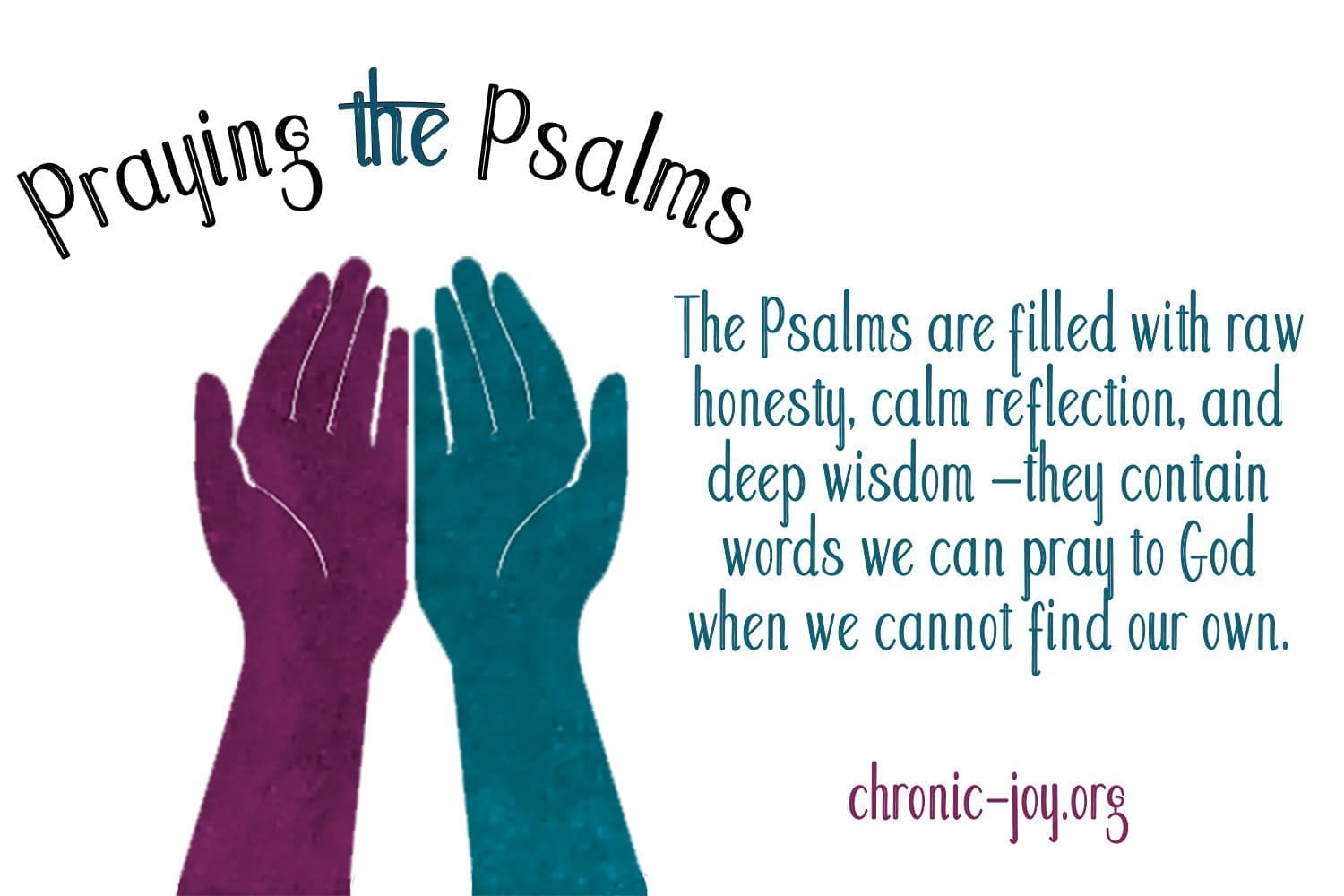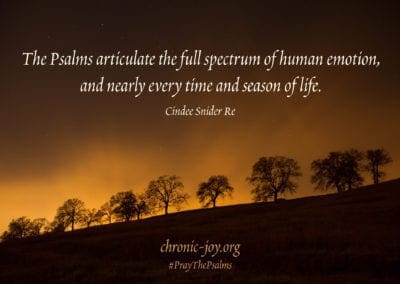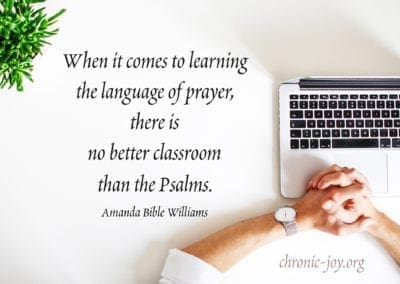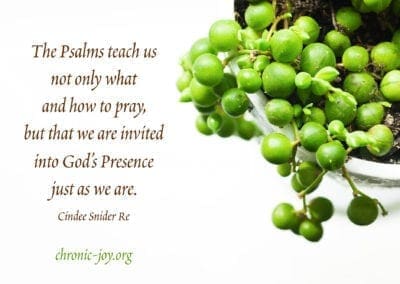Praying the Psalms
GOD’S PRAYERBOOK FOR HIS PEOPLE
The Psalms are filled with raw honesty, calm reflection, and deep wisdom – they contain words we can pray to God when we cannot find our own.
“When it comes to learning the language of prayer, there is no better classroom than the Psalms.” (Amanda Bible Williams)
God placed a rich and precious prayer book at the heart of His Word for His people. The Psalms are filled with raw honesty, calm reflection, and deep wisdom. The Psalms teach us not only what and how to pray, but they invite us into God’s Presence just as we are.
5 REASONS TO PRAY THE PSALMS
1. THE PSALMS TEACH US TO PRAY.
The Psalms are God’s Word, given to His people, to be spoken, sung, and prayed back to Him – and they were the prayer book of His son, Jesus.
“It would not be difficult to arrange all of [the Psalms] according to the petitions of the Lord’s Prayer, and thus to show how the Psalter is entirely taken up in the prayer of Jesus.” (Dietrich Bonhoeffer)
2. THE PSALMS VOICE THE FULLNESS OF THE HUMAN EXPERIENCE.
The Psalms reveal our deepest hurts and longings, our anxious and angry struggles, hidden shame and guilt, genuine thanksgiving, and joyful praise. They teach us what it means to be fully human in an honest, intimate relationship with our powerful, mysterious, and intimately loving God.
3. THE PSALMS TEACH US TO TRUST GOD.
The Psalms show that God is good, faithful, sovereign, and undeniable. Regardless of the outcome, whether our circumstances change or not, God is God and in complete control.
4. THE PSALMS TRAIN US TO BEAR THE CROSS.
The Psalms “teach and train us to bear the cross … so that the affections which are the bitterest and most severe to our nature, become sweet to us because they proceed from [Christ].” (John Calvin)
5. PRAYING THE PSALMS MOVES US FROM ME TO WE.
Praying the Psalms unite us with one another throughout the world and across time. These sacred words have been spoken, sung, read, and studied millions of times by millions of people in more than 689 languages.
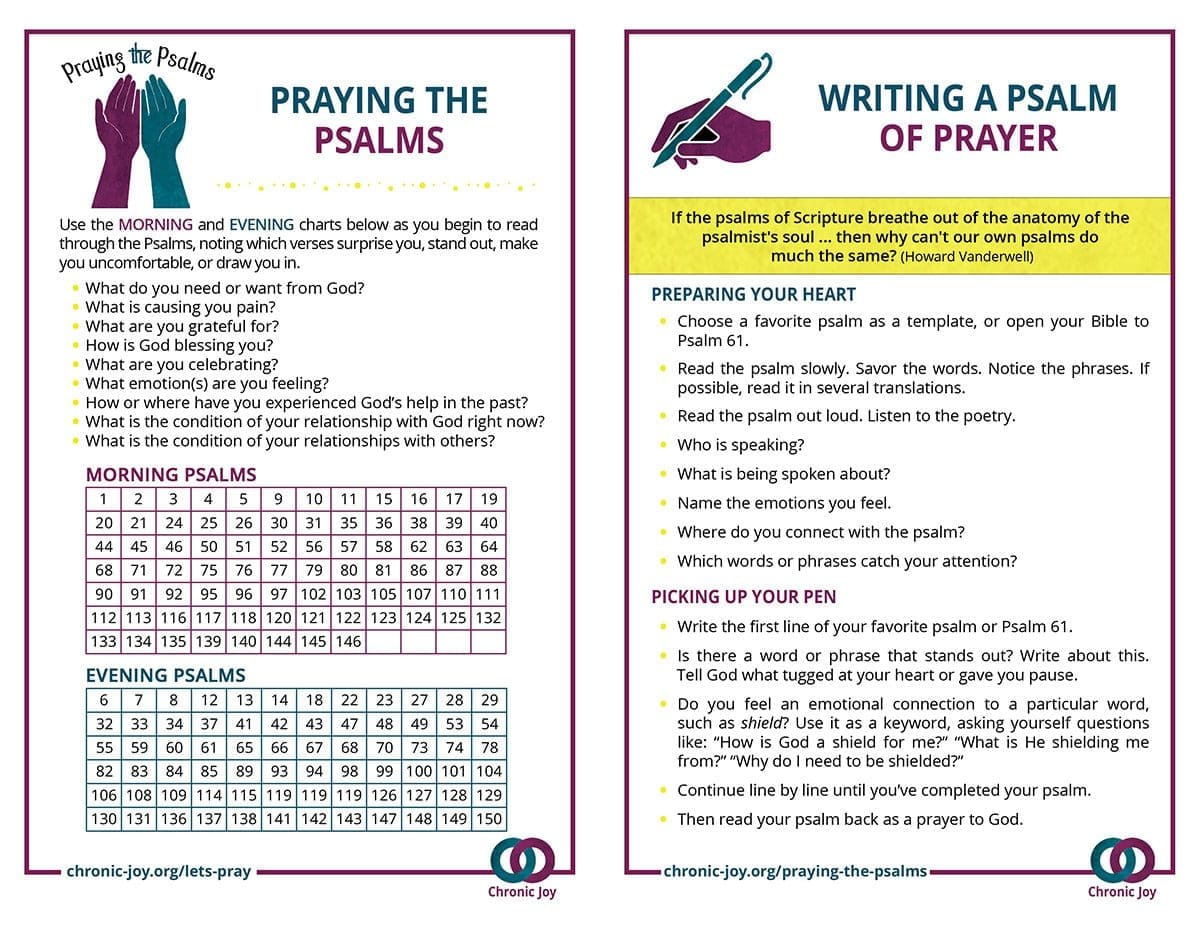
Praying & Writing the Psalms
What is your favorite Psalm? Why? When did you choose it? What was happening in your life at the time? Have you ever considered writing your own psalm?
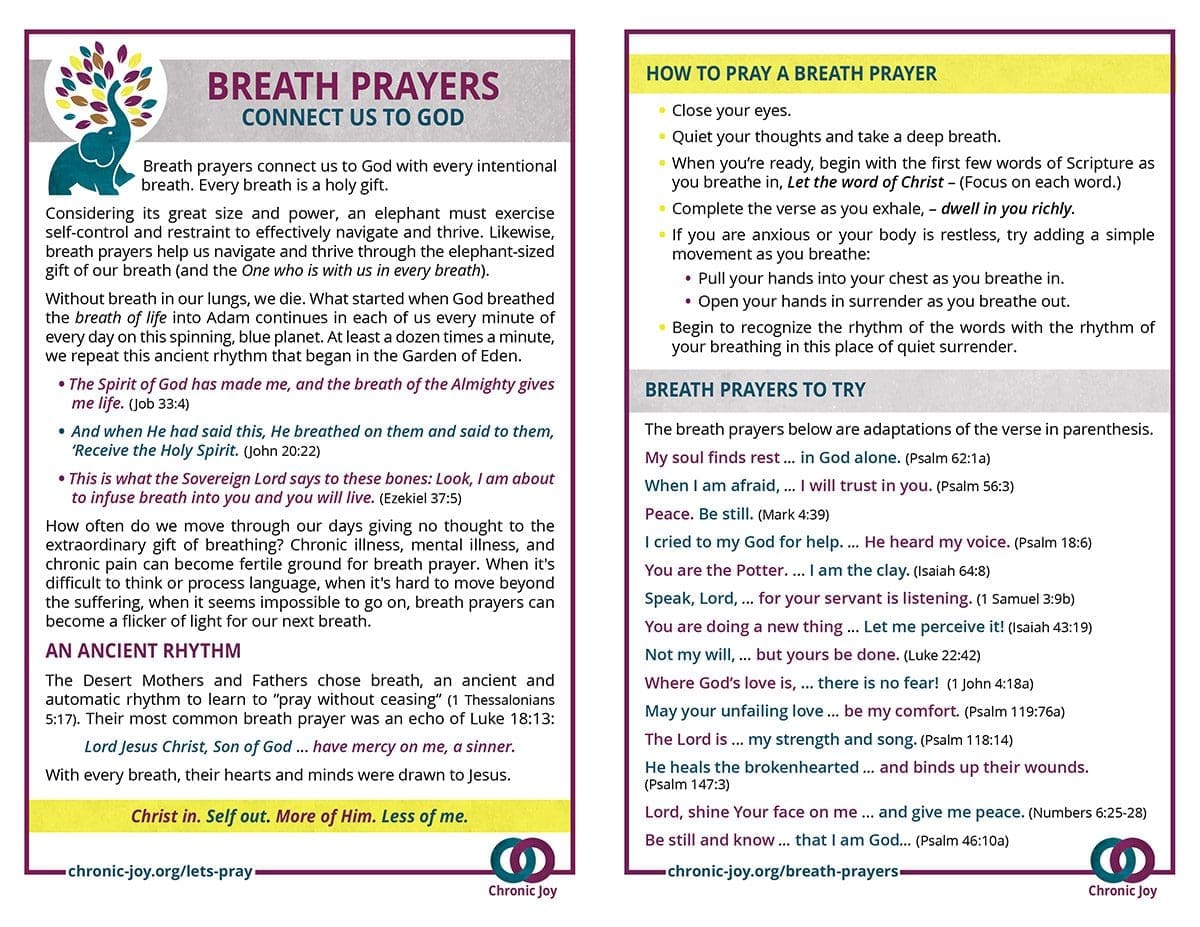
Breath Prayers
Considering its great size and power, an elephant must exercise self-control and restraint to effectively navigate and thrive. Likewise, breath prayers help us navigate and thrive through the elephant-sized gift of our breath (and the One who is with us in every breath).
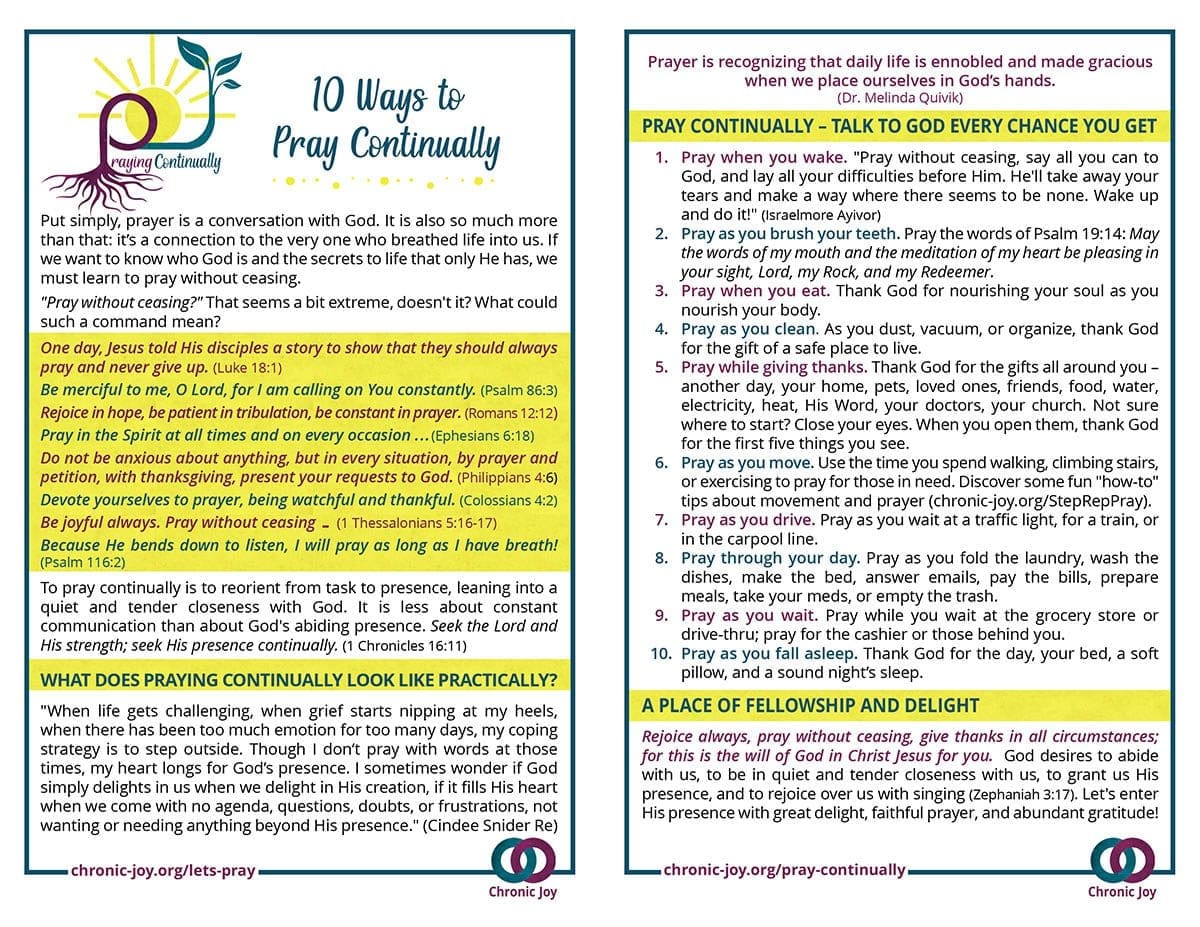
10 Ways to Pray Continually
Put simply, prayer is a conversation with God. It is also so much more than that: it’s a connection to the very one who breathed life into us. If we want to know who God is and the secrets to life that only He has, we must learn to pray without ceasing.
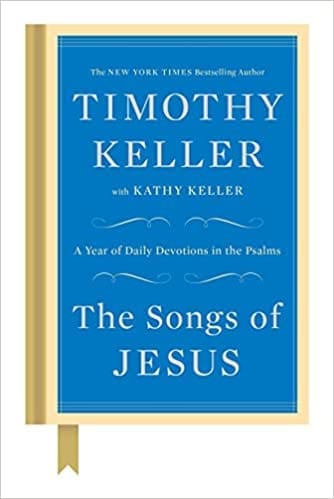
The Songs of Jesus: A Year of Daily Devotions in the Psalms
Timothy Keller
The book of Psalms is known as the Bible’s songbook. Jesus knew all 150 psalms intimately and relied on them to face every situation, including his death. The Songs of Jesus is based on Keller’s accumulated years of study, insight, and inspiration recorded in his prayer journals. Inviting readers into the vast wisdom of the Psalms, Keller guides us in finding distilled meaning in each verse.
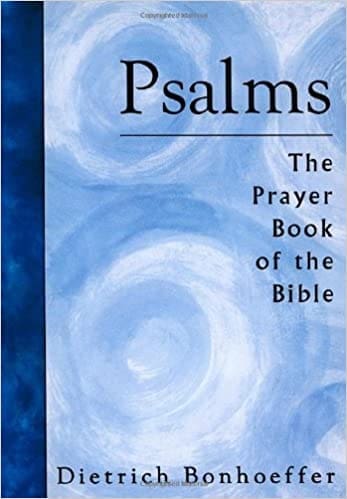
Psalms: The Prayer Book of the Bible
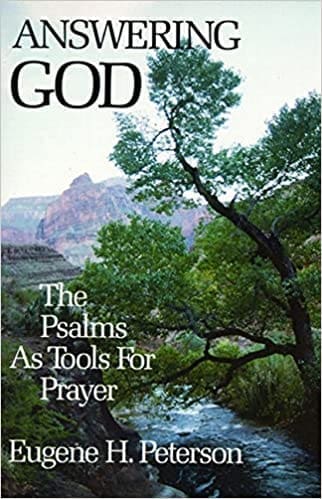
Answering God: The Psalms as Tools for Prayer
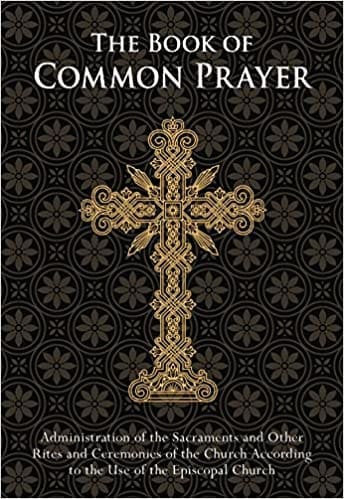
The Book of Common Prayer
From Ashes to Glory: A Psalm A Day
Karin Fendick
Though not from a liturgical background, Karin felt led to celebrate the holy through the period from Ash Wednesday to Resurrection Sunday. From Ashes to Glory is a collection of forty-seven brief psalms written as a daily offering of worship that will encourage and draw you closer to God in any season.
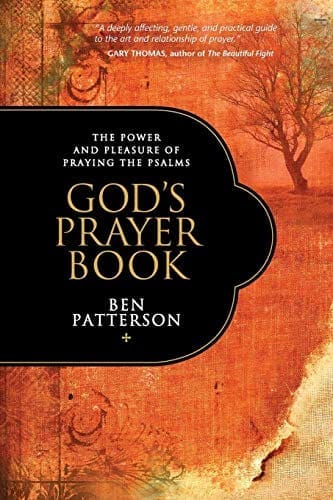
God’s Prayer Book: The Power and Pleasure of Praying the Psalms
The Amazon buttons are affiliate links, which means if you click on the link and purchase the item, Chronic Joy will receive an affiliate commission.
The Psalms articulate the full spectrum of human emotion
“The Psalms articulate the full spectrum of human emotion across every time and season of life.” (Cindee Snider Re)
God placed a rich and precious prayer book,
“God placed a rich and precious prayer book, the Psalms, at the heart of His Word for His people.” (Cindee Snider Re)
When it comes to learning the language of prayer
“When it comes to learning the language of prayer, there is no better classroom than the Psalms.” (Amanda Bible Williams)

